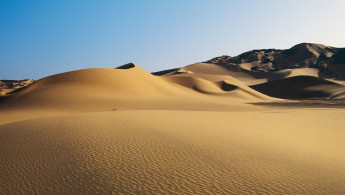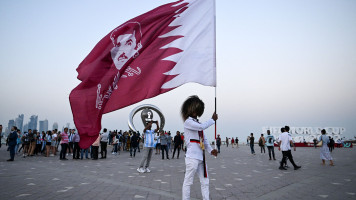Algeria opposition unbowed after government blocks meet
Algeria’s government and opposition are at loggerheads after authorities in Algiers stepped in at the last moment to
| The reality is that this is a political impediment. Authorities ... don't want a responsible and serious oppositon. - Djilali Sofiane, Jil Jadeed |
stop a long-planned conference of the Coordination for Liberties and Democratic Transition (CLDT), an umbrella group of five main Algerian opposition groups.
The government did not make any announcement banning the conference or offer any public explanation. And opposition organisers said they were only informed 24 hours before the event was supposed to go ahead on February 14 that the conference had been blocked.
But opposition members said organisers had sought and received permission to go ahead on January 20 and the explanation they had been proffered, that the theme of the conference was unclear, made no sense since local authorities had nearly a month toe make a decision.
“The reality is that this is a political impediment. They (authorities) don’t want the opposition to meet and work to stifle opposition,” Djilali Sofiane, head of the Jil Jadeed (New Generation) Party, one of the CLDT factions, argued.
Authorities were trying to prevent the emergence of a “responsible and serious” political class, he said.
“It is a very negative political message addressed by the both the interior and exterior, as it highlights a lack of willingness from the State to have a minimum of political freedom opening in Algeria.”
The CLTD issued a statement calling the ban unconstitutional and arbitrary and responded by organising a protest march in Algiers on Saturday where speakers publicly denounced the government decision.
Nationwide protests
The opposition has also called for sit-in protests across Algeria on February 24. The demonstrations are to protest the government programme to extract shale gas in the southern province of In Salah where the local population has been protesting for weeks.
So far, the government shows no sign of backing down, but the entrance of the CLDT into the issue may change the equation in an area of historic resonance for Algerians.
It was in the In Salah province that the French carried out above-ground nuclear tests in the 1950s and up until independence in 1962, and where underground tests continued for another few months after under a secret agreement with the Algerian National Liberation Front, the FLN, which is part of today’s ruling coalition and still the country’s largest party.
And the CLDT’s call for a nationwide protest against the In Salah shale development plans may turn out to be a test of the opposition bloc’s popular reach as well as a test of will with authorities.
A first sit-in protest had been banned by the authorities but Sofiane said the bloc would continue to request permissions for more.
Collecting the opposition
Created in early January 2012, the CLDT is a coalition of Islamist and secular political groups as well as human rights and civil society activists. It was created on a platform to put an end to the political and institutional stalemate and build a cohesive opposition bloc.
A year after a presidential election that swept Bouteflika back for a fourth term into power with 81.5% of the vote, the opposition believes it is more vital than ever to modernize Algeria’s political system as it has reached its limits.
The CDLT managed to organize a conference of more than 400 members of the opposition in Algiers on June 10, 2014. The meeting was the largest assembly of opposition forces the country had ever seen and is seen by many as a defining moment in Algeria’s recent history.
There, opposition parties thrashed out platform calling for more democratic and transparent government. The CLDT demanded the appointment of a transitional government, the establishment of a consensual constitution and the creation of an independent election commission.
In response, the government appointed a point man to lead consultations on reforms to the constitution.
But Ahmed Ouyahia, a former prime minister, is in some quarters seen as the president’s ‘dirty mission’s’ man. Back in June, and after the Algiers opposition conference, Ouyahia told the press that “Algeria has long-standing democratic institutions and does not need a transition.”



